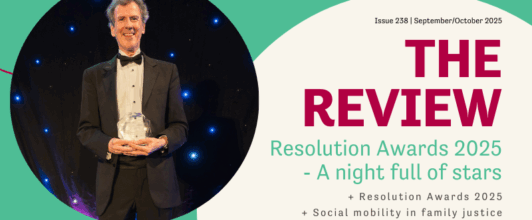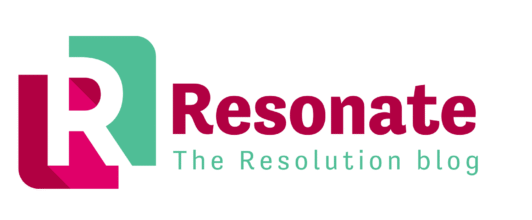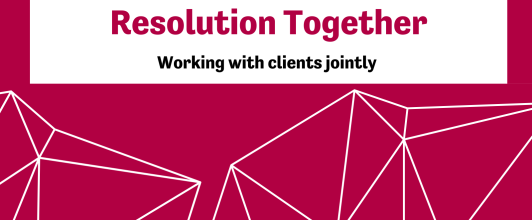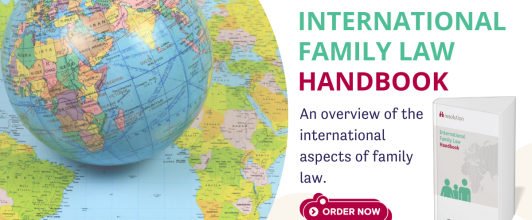
The Review
The Review is Resolution's bi-monthly magazine for members. Publishing six times a year with a mix of features, law and practice and news from the regions.
Broad range of information for professionals and practitioners in family law and justice.
Showing 41 - 60 of 518

The Review is Resolution's bi-monthly magazine for members. Publishing six times a year with a mix of features, law and practice and news from the regions.

Resonate is a new blog from Resolution, bringing together voices from across family law to share insight, experience and both personal and professional perspectives
As part of Resolution's Code of Practice members are asked to use the Good Practice Guides as part of their day to day work. These represent Resolution's core values and are designed to offer knowledge and guidance to our members.

Resolution Together is a way of working that allows lawyers to work with and advise couples jointly, including providing appropriate legal advice, through a divorce or separation.

Find resources on mediation, collaborative practice, arbitration and more.

This list of recommendations of family lawyers in other jurisdictions has been compiled by the members of Resolution's International Committee based on their working experience. The lawyers on this list are not Resolution members - unless indicated - and as such are not endorsed or recommended by Resolution.
Resolution’s response to the Ministry of Justice Review of Civil Legal Aid.
Welcome to your February 2024 edition of the Legal Aid newsletter from Resolution.
Social media can be a useful tool for family solicitors to connect with the public and other professionals, publicise campaigns, raise the profile of members and communicate about the work we do. As it can potentially reach a wide audience, we must be careful about how our use of social media impacts on our client-related work.
Welcome to your January 2024 edition of the Legal Aid newsletter from Resolution. We wish all our readers a happy New Year!
Resolution’s response to the Ministry of Justice's consultation seeking views on a proposal to deliver increases to selected court and tribunal fees, to partially reflect changes in the general level of prices.
Welcome to your December 2023 edition of the Legal Aid newsletter from Resolution.
Resolution’s response to the recommendations for best practice in respect of the Adoption Interim report of the Adoption Sub-Group of the Public Law Working Group
Welcome to your November 2023 edition of the Legal Aid newsletter from Resolution.
Resolution’s response to the Family Justice Council.
Welcome to your October 2023 edition of the Legal Aid newsletter from Resolution.
The introduction, development and evolution of new methods of resolving family disputes for changing families means there is a need for us all to look at how we communicate as members of Resolution; with our clients, with other members, with our clients’ former partners if they are not represented by a lawyer, with other members of our clients’ families, with other non-member lawyers, barristers, judges, mediators and arbitrators and more widely within the family justice system. Poor communication accounts for the largest number of complaints received by Resolution.
Resolution’s response to the Ministry of Justice.
Resolution’s response to the Family Procedure Rule Committee.
Resolution’s response to the Family Procedure Rule Committee.
Our Parenting After Parting Committee sat down with Sir James Munby to bring you a special two-part podcast.
Welcome to your April 2023 edition of the Legal Aid newsletter from Resolution.
This information is designed to help family solicitors and mediators who are not domestic abuse experts, to identify situations where clients may be suffering domestic abuse and/or violence.